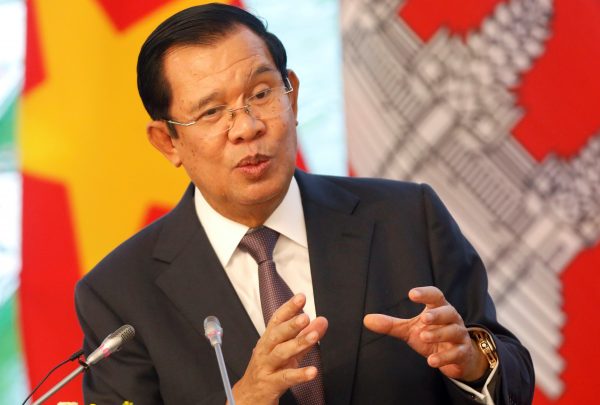The government’s Rectangular Strategy Phase IV (2018–2023) recognises the global economic shift to East Asia as a ‘golden opportunity’ for Cambodia to develop and modernise its industries, production and services. Integrating Cambodia’s production network with the region, developing infrastructure connectivity, and facilitating the cross-border flow of goods, services, capital and data are crucial foreign policy instruments. ASEAN, China, Japan and South Korea are Cambodia’s key economic partners.
While its external environment affects Cambodia’s economic performance, internal factors are just as important. Continuous economic reforms and human resource developments are the backbone of Cambodia’s remarkable economic performance over the past two decades, with a growth rate of about 7 per cent. Foreign policy has played a key role in protecting and advancing Cambodia’s national interests, including peace, economic security and cultural identity.
One of Cambodia’s foreign policy objectives is to provide equal economic opportunities to citizens by optimising national resources — both natural and human. Promoting economic diplomacy is a pathway towards this, but there will be stumbling blocks along the way.
Growing power asymmetry with China poses some risks and constraints for the country. China’s influence — along with human rights and democracy issues — are challenging Cambodia’s attempts to expand its economic ties with the West. The European Union has partially withdrawn 20 per cent of its quota-free and tariff-free trade treatment under the Everything but Arms scheme to Cambodia in response to perceived human rights violations and democratic backsliding. Under a Biden administration, US pressure on Cambodia on these issues might also increase.
In January 2021 the Ministry of Foreign Affairs and International Cooperation introduced ‘economic diplomacy’ to further promote trade, investment, tourism and the development of Cambodian cultural identity. This is a critical step towards the institutionalisation, systematisation and modernisation of its foreign economic policy. It is also the first-time economic diplomacy has been placed front and centre of Cambodia’s foreign engagement strategy. Prime Minister Hun Sen has consistently advocated for open, inclusive and rules-based multilateralism.
The economic diplomacy strategy of 2021–2023 will be instrumental in enhancing Cambodia’s international integration, diversifying its economic partners, expanding its export markets, and attracting foreign investors and tourists. It will also help to transform the international environment into a source of national development and poverty reduction. The strategy aims to contribute to Cambodia’s vision of becoming a higher-middle-income country by 2030 and a high-income country by 2050. Capacity-building for diplomats and government officials has been identified as a key area to implement robust economic diplomacy.
The conclusion of the Cambodia–China Free Trade Agreement in late 2020 and the Cambodia–South Korea Free Trade Agreement in early 2021 demonstrate Cambodia’s economic diversification strategy at play. Cambodia’s participation in the Regional Comprehensive Economic Partnership further connects it with the regional economy. The more integrated Cambodia is, the more opportunities it can seize.
But Cambodia also needs to build its national resilience to deal with external shocks and crises. The economic fallout from the COVID-19 pandemic had a monumental impact on people’s livelihoods. Cambodia’s economy contracted by 3.1 per cent last year — its worst economic performance in the past four decades.
The economic recovery plan for 2021–2023 has been launched to revive the economy. Agriculture and agro-processing, manufacturing industries and local tourism have been identified as growth-driving sectors. Digital economy sectors like e-commerce and fintech, as well as assembly, medical device and equipment industries are also emerging. It is estimated that the economy will rebound this year with a growth rate of around 4 per cent.
The national consensus is that economic security is national security. There is a growing perception that Cambodia cannot sustain its independence unless its economic foundation is strong.
To build a resilient economy and society, the government plans to develop a shock-responsive social protection system, boost spending on healthcare, upskill the workforce, promote quality investments and develop climate-resilient infrastructure. It will also release a digital economy policy framework in 2021 to take advantage of opportunities stemming from the Fourth Industrial Revolution.
Cambodia needs to invest more resources in capacity-building for government officials, entrepreneurs, journalists and students. Leadership, inter-agency coordination, policy implementation and public–private partnerships will be critical to realising Cambodia’s economic diplomacy vision.
Vannarith Chheang is a Visiting Fellow at the ISEAS-Yusof Ishak Institute, Singapore.

